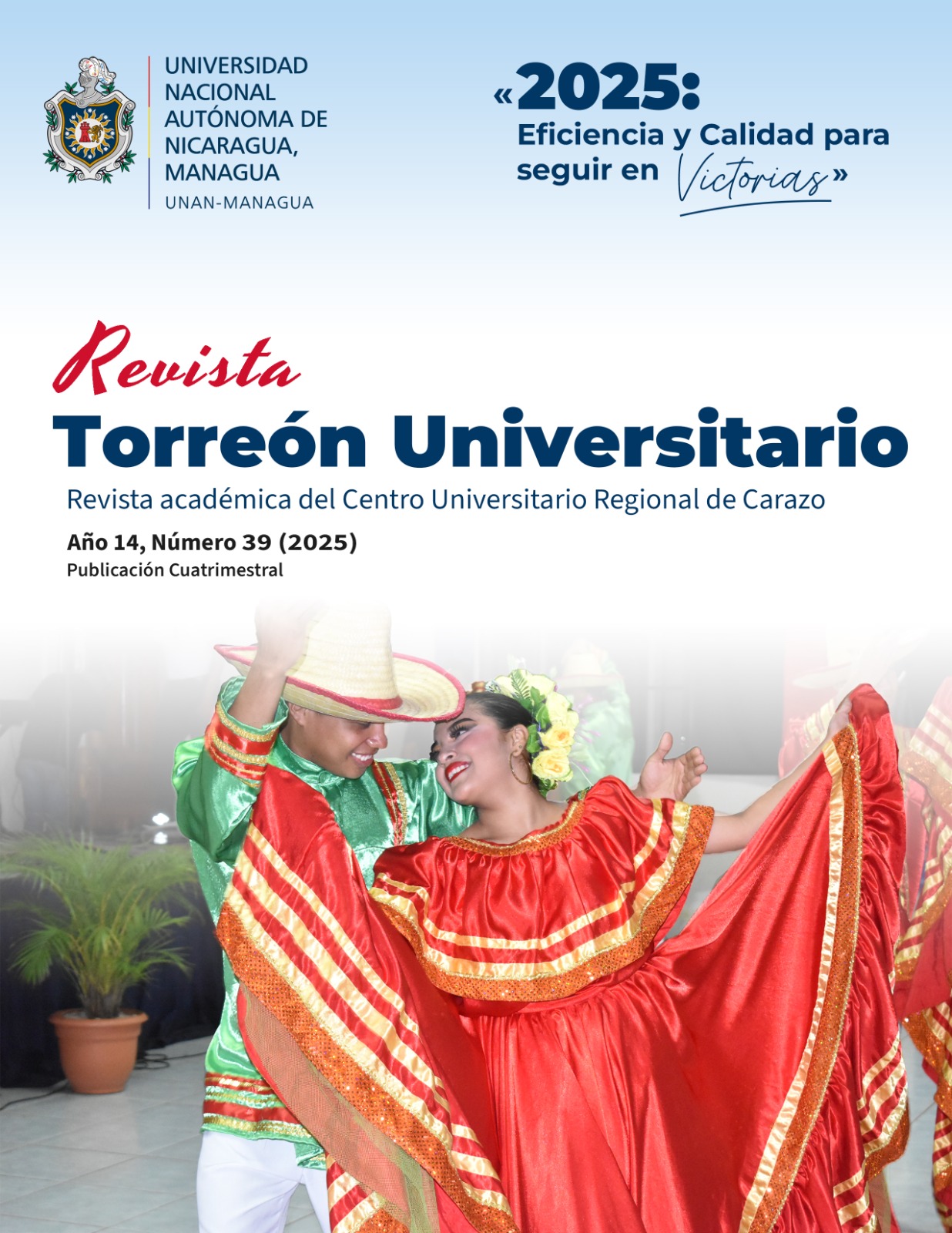Learning strategies applied to developing competence in specialization internship Plan 2016, in the major of Communication for Development at UNAN- Managua.
DOI:
https://doi.org/10.5377/rtu.v14i39.20040Keywords:
Competencies, learnings, specialization internship, strategiesAbstract
The present research aims to describe the key learning that strengthens the professional competencies achieved by students who took the last Specialization Internships of Plan 2016. It should be noted that the selected sample is random by convenience, where 15 students of Communication for Development of the third year, morning shift of III years, II Semester 2022 were taken from a total of 42 students enrolled. As for the research design, it is based on the positivist paradigm, according to Ballina (2004) "The positivist paradigm, also called quantitative paradigm, empirical analytical rationalist, is the dominant paradigm... the positivist or naturalist paradigm is characterized by the high interest in the verification of knowledge through predictions" (P. 3). The present research is observational transversal of descriptive type because the students, based on an observational visit to Channel 6, to know the work areas and its facilities, reflected and compared between the learning process achieved from the classroom and its relationship with the media. Regarding the learning from the Specialization Internships and the visit to the field of action such as Channel 6 in the year 2022, 9.75% of the men and 24.39% of the women agreed that camera handling, editing, improvisation, diction, and dynamism should be improved, since writing, interview handling and including cultural, social, historical and political topics were strengthened during the course of the major, participation in the Victory Units and the Communication System. In conclusion, the Specialization Internships strengthened the institutional identity, developing skills and abilities through the different tools, formats, informative genres, and learning for life from the dialogue of knowledge.
Downloads
References
Alvarado, A. (13 de febrero, 2020). UNAN-Managua y Canal 6 firman Convenio en el Marco de Cooperación. UNAN-Managua.
Alvarado, A. (13 de febrero, 2020). UNAN-Managua y Cinemateca Nacional firman convenio marco de colaboración. UNAN-Managua.
Assmann, H. (2002). Placer y ternura en la educación: Hacia una sociedad aprendiente. Madrid: Narcea.
Ballina, F, (2004). Paradigma y perspectivas teóricas- Metodológica en el estudio de la administración. Universidad veracruzana.
https://www.uv.mx/iiesca/files/2013/01/paradigmas2004-2.pdf
Consejo Nacional de Evaluación y Acreditación (2020). Manual de Verificación de las Obligaciones establecidas en el Arto. 10 de la Ley 704. Managua, Nicaragua: CNEA.
Escobar Soriano, Álvaro, Videa, X. L., & de Armas, R. (2021). Armonización de las Carreras de Educación en Nicaragua: experiencia y proyecciones. Revista Torreón Universitario, 10 (27), 8–18. https://doi.org/10.5377/torreon.v10i27.10834
UNAN-Managua (26 octubre 2012). Documento Curricular y Planes de Estudio de la Carrera de Comunicación para el Desarrollo “Prácticas de Especialización”. Managua, Nicaragua: Editorial Universitaria.
Downloads
Published
Issue
Section
License
Copyright (c) 2025 National Autonomous University of Nicaragua, Managua

This work is licensed under a Creative Commons Attribution-NonCommercial-NoDerivatives 4.0 International License.
The authors who publish in this journal agree to the following terms.
- The author or authors of the articles, essays or research grant the National Autonomous University of Nicaragua, Managua (UNAN-Managua) the editing rights (copyright) of the submitted work, therefore the University has the exclusive right to publish the article for the entire copyright period.
- These copyrights/authors authorize Torreón Universitario Magazine and the University to edit and disseminate/publish the article in said Magazine, including printed and electronic reproduction, storage, retrieval and any other type of publication, and sources of secondary information as services. of summaries and databases, they also empower it to protect the article against unauthorized use for dissemination by printed or electronic media (PDF, HTML, EPUB, XML or others).
License for use of content
The magazine uses the Creative Commons Attribution-NonCommercial-NoDerivs 4.0 International License.
Under this statement:

This journal is licensed under a Creative Commons Attribution-NonCommercial-NoDerivatives 4.0 International License. It can be copied, distributed and transmitted publicly as long as the author and source are cited (Revista Torreón Universitario), it should not be modified or used for any commercial purpose. The full license can be found at http://creativecommons.org/licenses/by-nc-nd/4.0/.



